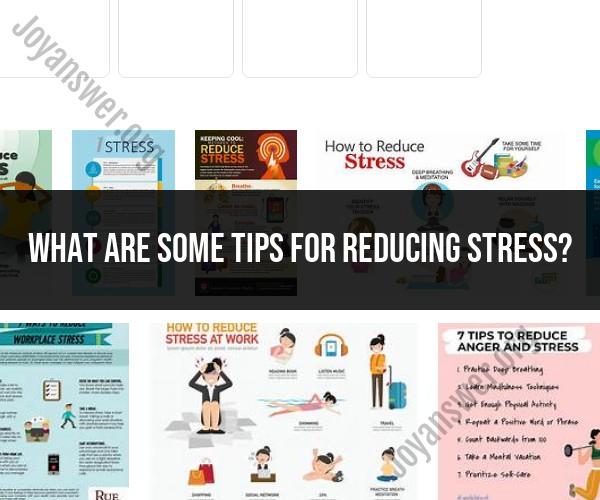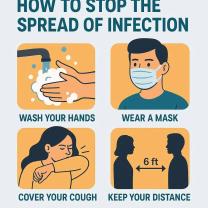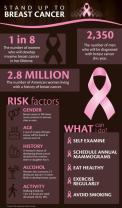What are some tips for reducing stress?
Reducing stress is important for maintaining physical and mental well-being. Here are some tips to help you find balance in a busy world:
Practice Deep Breathing: Take slow, deep breaths to calm your nervous system. Deep breathing exercises can be done anywhere, anytime.
Exercise Regularly: Physical activity helps release endorphins, which are natural stress relievers. Find an activity you enjoy, whether it's walking, jogging, yoga, or dancing.
Get Adequate Sleep: Ensure you're getting enough quality sleep each night. Sleep is essential for stress recovery and overall health.
Healthy Eating: Maintain a balanced diet with plenty of fruits, vegetables, and whole grains. Avoid excessive caffeine and sugar, which can contribute to stress.
Limit Caffeine and Alcohol: Both can increase stress and anxiety. Limit your intake, especially in the evening.
Practice Mindfulness and Meditation: These techniques help you stay present and reduce anxiety. You can use apps or online resources to get started.
Set Realistic Goals: Don't overextend yourself. Set achievable goals, and break larger tasks into smaller, manageable steps.
Time Management: Prioritize tasks and use time management techniques to reduce the feeling of being overwhelmed.
Social Support: Share your feelings with trusted friends or family members. Sometimes, just talking about what's bothering you can be a big relief.
Limit Screen Time: Reduce the time you spend on screens, especially social media, as excessive screen time can increase stress.
Take Breaks: Whether you're working or studying, take regular breaks to rest and recharge. Short breaks can improve productivity and reduce stress.
Engage in Hobbies: Spend time doing things you enjoy outside of work or daily responsibilities.
Simplify Your Life: Declutter your living space and simplify your schedule. A clutter-free environment can promote a sense of calm.
Seek Professional Help: If stress becomes overwhelming or persistent, consider talking to a mental health professional who can provide guidance and support.
Remember that everyone is different, so it's important to find stress reduction techniques that work best for you. Experiment with various strategies and create a stress management plan tailored to your needs and lifestyle.











